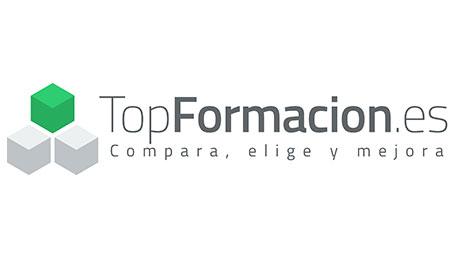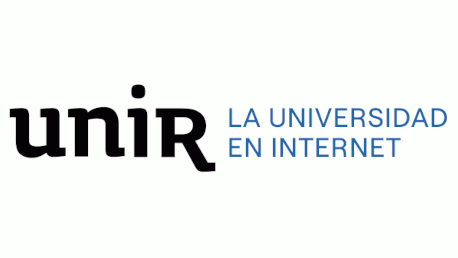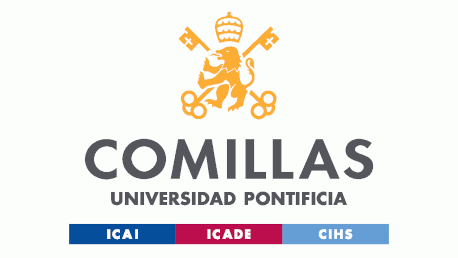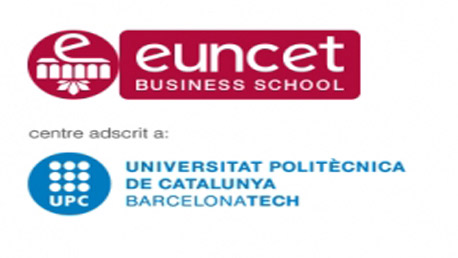Master Executive MBA English


Si has realizado este curso, ¿por qué no darnos tu opinión?. Si lo haces, estarás ayudando a miles de personas que, como tu en su momento, están intentando cambiar su vida a través de la formación. No hay mejor ayuda, para decidirse entre miles de cursos, que la opinión de una persona que ha vivido la experiencia de cursarlo, miles de personas te lo agradecerán.
Danos tu opinión detallada sobre el Master Executive MBA English. No olvides decirnos que te pareció el temario del curso, el profesorado, la accesibilidad al equipo del centro para resolver tus dudas y, en el caso de los programas online, la calidad del campus virtual.
El Master Executive MBA English es online, tiene una duración de 12 meses.
PRESENTACIÓN DEL MASTER EXECUTIVE MBA ENGLISH
Our Executive MBA is especially designed to gain an in-depth knowledge of the four stages of the business strategic formulation process: designing the strategy, its mplementation, growth strategies, and strategic monitoring and control.
The main aims of the Online Executive MBA are:
·Develop essential skills to lead a business project.
·Offer an integrated and global vision of general management and the role of the company in its widest context.
·Development of a strategic and innovative thought and entrepreneurial skills.
·Increase the ability of managers to make decisions in an increasingly complex environment.
·Favour detection, analysis and problem-solving skills.
·Encourage communication and team work.
The Executive MBA is the most recognised business qualification worldwide. The programme provides with a solid knowledge of the most innovative business management techniques, encourages the use of new information and communication technologies and promotes the development of leadership skills.
OTRAS CARACTERÍSTICAS DEL MASTER EXECUTIVE MBA ENGLISH
·Credits: 60 credits ECTS
·Duration: 12 months
REQUISITOS Y TITULACIÓN DEL MASTER EXECUTIVE MBA ENGLISH
In order to access the programme it is necessary to have a university degree and professional experience. Should you not meet any of the mentioned requirements, access to the programme will be assessed by the Programme Management.
PROCESO DE ADMISIÓN DEL MASTER EXECUTIVE MBA ENGLISH
1. Fill in the Application for Admission
The main objective of the admission process is to ensure the suitability of the candidates for the programme, by looking at their professional experience and their academic CV. Our aim is for all participants to make the most of the experience we offer through a context in which they may develop a long-term relationship with classmates, teachers and alumni.
In order to start the admissions process, it is necessary to fill in the form.
2. Assessment of the Application
After submitting the Application, the candidate will obtain via email a notification of the Academic Committee’s decision within a maximum term of 7 days. If the decision is positive, the candidate may formalise his or her registration for the programme.
3. Registration
Once admitted, you can register for the programme. You will find all the necessary information on the Admission Letter.
PHASE 1: Designing the Strategy
1. Entrepreneurship
1.1. Entrepreneurship: from ideas to companies
1.2. Entrepreneurship vs. Intrapreneurship
1.3. Business Concepts and Business Plans
1.4. Strategic Analysis
1.5. The start of the business activity
2. Strategic Management
2.1. Review of the concept of Business Strategy
2.2. Understanding the role of General Management within a business organisation 2.3. Phases of the Strategic Process
3. Strategic Innovation
3.1. Introduction to innovation
3.2. Organisational skills
3.3. Innovation projects
3.4. The dynamics of technological innovation
4. Financial Diagnosis
4.1. Introduction to the Company´s Financial Statements
4.2. Key concepts
5. Organisational Design
5.1. Basic elements of the business organisation
5.2. Fundamental structures
5.3. Complex, international and project-based structures
PHASE 2: Applying the Strategy
1. Creativity and Implementation of the strategy
1.1. What is a creative organisation?
1.2. Strategic Implementation
2. Marketing: from ideas to the Market
2.1. Product/Service Management. From concepts to ideas
2.2. Market, Positioning and Segmentation. From analysis to action
2.3. Marketing trends. From paper to Internet
3. Client Satisfaction and Loyalty
3.1. Satisfaction and Loyalty: a new vision
3.2. First satisfaction, then loyalty
3.3. Retention versus loyalty
3.4. Profitable loyalty programmes
4. Selection and Retention of Talent
4.1. Strategy and Policies in People Management
4.2. Strategic People Management
4.3. Detection, Selection and Retention of Talent: Design of Policies, Remuneration and Incentives
4.4. Innovation in the Field of People Management
5. Operations
5.1. Key Concepts in the Department of Operations
5.2. Operations strategy
5.3. Integral Logistics
PHASE 3: Growth and Internationalisation
1. Strategy & International Marketing
1.1. Internationalisation Plan and & International Marketing Plan
1.2. The Process of Internationalisation
1.3. International Strategic Formulation
1.4. Strategy and International Segmentation Decisions
2. Selection and Assessment of Investments
2.1. Business Investments
2.2. Assessment and Selection of an Investment
2.3. Stock Exchanges
2.4. Exchange traded futures and options, OTC, fixed income securities
3. International Taxation
3.1. Business activity and taxation
3.2. Tax obligations
3.3. Fiscal planning in the company
3.4. International Taxation
4. Mergers & Acquisitions
4.1. The Purchase of Companies as Tool for Creating Value and Leveraged Management Buy-Outs, etc
4.2. Venture Capital, Going Public and the Main Aspects to Take into Account when Selling a Company
4.3. Main aspects and procedures that must be considered in a sale and purchase process
5. Cross-Cultural Management
5.1. Cross-Cultural Management: what is it?
5.2. International negotiations: what makes them fail?
5.3. Mergers between companies
5.4. Management of expatriates
PHASE 4: Strategy Monitoring and Control
1. Innovating Finance
1.1. Innovation in finance: innovation as a strategy, also in finance
1.2. Innovation in finance: cutting edge finances
1.3. The contribution of finance to innovation projects
2. Management of ICTs and Knowledge
2.1. The role of the Information Systems (IS) in organisations
2.2. Information Systems Strategy
2.3. Management of Information Systems
2.4. Business applications: processes and systems
3. Management Planning and Control
3.1. The concept of Management Control
3.2. Business Strategy and Management Control
3.3. Balanced Scorecard
3.4. Management Control Systems: Budgets and Deviation Analysis
3.5. Implementation of a Management Control System in the Company
3.6. Organisational Culture and the Management Control System
3.7. International Management Control
4. Negotiation and Conflict Resolution
4.1. Negotiation
4.2. Conflict Resolution
5. Leadership and Change Management
5.1. Organisation and business culture
5.2. Leading the strategic process of innovation in the company
5.3. Change Management and Conflict Resolution
5.4. Monitoring and control of change implementation





